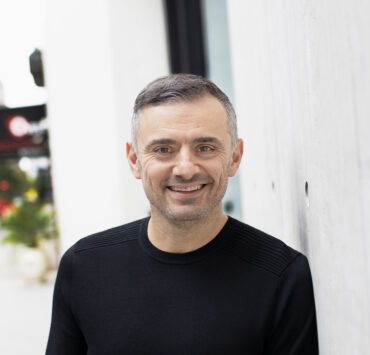|
Getting your Trinity Audio player ready... |
Corporate leaders often have hard and fast rules that they follow to successfully manage their team—be assertive yet approachable, stern yet understanding, and available yet hands-off. Jefferies Finance’s Daniel Duval credits his successful leadership style to his ability to adapt throughout his tenure with the company.
Duval joined Jefferies Finance—the corporate lending and asset management affiliate of Jefferies, a global investment banking firm—just four years after its inception in 2004. When he first joined, he was the sole lawyer to the recently formed twenty-person middle market lending business.
Over the years and through multiple credit cycles and crises, the business has grown and evolved. Duval began as the senior counsel and vice president and has since worked his way up to his current position as general counsel, chief compliance officer, and managing director.
“It’s been a transformative experience in which I’ve been fortunate to learn and grow and be continuously challenged to stretch into new subjects and areas of expertise,” he says. “Today, we have close to one hundred employees and we manage more than $12 billion in assets under management. And we have continued to rank number one in the league tables for US-leveraged buyout financings, according to Bloomberg, for the past three years.”
Duval’s role has grown and evolved in response to an ever-changing regulatory environment, gains in market share, and expansion into new products, markets, and geographies. As his legal team has expanded, Duval has adapted his leadership style to the changing circumstances.
At first, he was an army of one, in which he had to be decisive and very hands on, while working democratically with other divisional leaders. He built standardized procedures and templates, which he adapted and refined as the business evolved.
“It’s been a transformative experience in which I’ve been fortunate to learn and grow and be continuously challenged to stretch into new subjects and areas of expertise.”
Daniel Duval
Duval formed a team of high-performing legal specialists he can rely on to filter and bring him the issues with which they need help. This frees Duval up to lead the firm’s strategic initiatives, setting goals in collaboration with senior management and driving the implementation of transformational projects across divisions. He notes that the process has now come full circle, as he taps junior attorneys to lead smaller initiatives, set goals, and identify needed resources while empowering them.
“It is a pleasure and a real privilege to work with Dan,” say Bjorn Bjerke and Merritt Johnson, partners at Shearman & Sterling. “He has clear strategic vision and a deep understanding of Jefferies Finance’s commercial goals and how to create and identify practical solutions. Dan is really great at communicating his and his teams’ goals and requirements to us here at Shearman & Sterling so that we can more effectively deliver the legal services that he needs and, more importantly, the value-add that is so crucial to Dan and his team’s success.”
Over the past thirteen years, Duval has been crisis tested through the Great Recession and market down turns. At the onset of the COVID-19 pandemic, Duval and his colleagues jumped into action to focus first on employee health and safety and then on transitioning into a virtual office model. They have been working remotely since 2020, while continuing to support Jefferies’ clients day in and day out.
Social distancing measures led Duval to formalize daily communication, with daily management and team meetings to share updates, set goals, and measure progress. The structured communication channel helps ensure all team members are heard, establishes a core information set from which team members can make better independent decisions, and provides a forum for new or more junior members to learn about the business.
The pandemic certainly tested Duval’s adaptive mindset, but it wasn’t his first test. Duval started his undergraduate degree on the pre-med track at Cornell, but with an interest in international business, he transferred into Cornell’s world-renowned School of Hotel Administration (now part of the business college). The school provided a strong foundation in business, including pre-law classes, which opened his eyes to the different ways that he could support businesses.
“I derive a lot of satisfaction from giving back to that process, and to my alma mater in particular, and mentoring and helping students and lawyers navigate their career in order to help them make better decisions for themselves.”
Daniel Duval
He stayed in Ithaca, New York, and earned his law degree at Cornell Law School. He attributes much of his current success to these pivotal three years, and he tries to give back to this community in any way that he can. “I derive a lot of satisfaction from giving back to that process, and to my alma mater in particular, and mentoring and helping students and lawyers navigate their career in order to help them make better decisions for themselves,” Duval says.
Duval joined the international law firm White & Case after law school. He spent his first three years in the New York office before transferring to São Paulo, Brazil, where he had a broad corporate practice leading finance transactions and debt and equity securities offerings for Brazilian issuers and banks.
When he moved to Brazil, he was one of only four attorneys in the office, and it pushed him to form deep connections with his clients.
“It was a formative experience for me to take real ownership of the transactions I worked on and to really dig into my clients’ businesses to help tailor to both their existing and future needs as well as push me to understand the clients’ work in a deeper, more substantive way,” Duval explains. “I think that was a precursor to my in-house experience. In a way, it was an external in-house opportunity where I was providing a wider range of external advice to our clients.”
His experience in Brazil was influential in many ways, perhaps most notably in that he became fluent in Portuguese and met his wife. The small office feel was also the push he needed to realize what type of law he was most interested in: in-house work. It was with this realization that he learned the importance of adaptability and mentorship.
Duval feels fortunate with the way that his career has turned out, and he feels strongly in advocating for others to pursue a similar path. “My career was built with the help of so many people over the years, and I believe in paying it forward. Throughout your career there are opportunities to help and be helped, to mentor and be mentored,” he notes. “I think it’s important for law students and young lawyers to understand that there are more choices than just working in a law firm.”
“My career was built with the help of so many people over the years, and I believe in paying it forward. Throughout your career there are opportunities to help and be helped, to mentor and be mentored.”
Daniel Duval
To have an influence on young lawyers and inspire them to pursue work as in-house counsel, Duval has made mentorship a key aspect of his leadership style. In addition to being adaptive, he also acts as a role model.
Duval was able to consciously choose his path forward by always thinking several steps ahead and seeking out the knowledge and experience to be able to build the skills he would need in the future. He encourages junior attorneys to not be passengers but rather active drivers of their career path—setting a destination, challenging themselves, and seeking out meaningful and rewarding experiences.
To empower others to do the same, he founded the Cornell Network of In-House Lawyers, which is a network of Cornell law students and alumni with in-house counsel experience or an interest in starting an in-house counsel legal career. The organization’s mission is to build community among peers, foster professional development, mentor relationships, and share opportunities.
Duval was unsure of what he wanted to do when he first started at Cornell, but his willingness to seek out new challenges and early experiences in his career allowed him to find his passion, and he now hopes to inspire others to find their path. Central to his leadership style is mentorship and an adaptive mindset, and he credits both of these to the success that he has been able to reach throughout his career.

